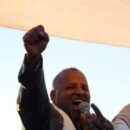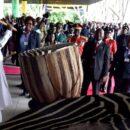Sudan: Elections and Freedom of Expression
For a free and fair election there is strong need for creating a conducive environment. We are only nine months away from the election date and far too little has been done.
Many laws which contradict the Interim National Constitution (Bill of Rights) are still in place with no serious intention from the National Congress Party (NCP) to change them. There are two main pieces of legislation which need immediate change: the National Intelligence and Security Act and the Press Laws.
In the last two weeks Sudanese security has stepped up its campaign against numbers of newspapers in Khartoum by preventing them from been distributed, they mainly targeted Ajaraz Al Horia newspaper and Al Maidan. The current press and media laws, augmented by security laws, give a free hand to the security organs. The most visible act of censorship is the so called pre-print control (ragaba gabalia) which takes place before the paper is even sent to print. This pre-censorship, firmly enshrined in the existing press and media laws, allows a unit of the national security organs to send security officers out to each newspaper every night to read what they intend to print and control it. Some of the tactics which the security is using includes confiscating entire editions of papers. This has massive financial implications for the paper. Its main purpose is to force the papers out of business as they lose their revenue from sales and advertisements.
The draft media law which was recently approved by the Council of Ministers and sent to the National Assembly to ratify it is actually a step backwards from the existing 2004 law. It has been criticized by many people in the field including the pro-NCP Journalists’ Association. The reasons for the criticisms are:
– It curtails and restricts the freedom of press more than it encourages it.
– The new draft law contradicts the main principles of the freedom of media contained in the Bill of Rights and international standards for freedom of expression. It contradicts the principles of the Interim National Constitution of 2005, and the Comprehensive Peace Agreement.
– Instead of dealing with any dispute as a civil law matter, the law considers it as a criminal case. The law imposes liability on journalists, publishers and distributors, with the effect of intimidating everyone who works in the media.
– It imposes control by the government of the press. The government appoints the chairperson and the members of the Press Council, which contradicts the self regulatory system which is supposed to supervise the press. The Minister of Information nominates eight members of the Press Council for the President to appoint them. The appointment of the Secretary General of the Council of the Press and Publications is by the President of the Republic, and not from within the Council.
– The law imposes very heavy fines on journalists and their papers that amount up to SP50,000 (US$ 25,000). This will mean forcing them out of business. If they do not pay at once, the law provides for the to be put in jail until they pay the fine. It allows the court to suspend any newspaper for up to two months, which also means forcing it out of business.
The government has also set many red lines for newspapers, by not allowing them to touch many issues which are matter for Sudanese people. The main reason for this is to minimize any criticism of the government record and also to avoid any mention of the corruption of government official and the NCP members.
Sudan is now moving closer to the general election and the referendum on self-determination. For these to be free, fair, legitimate and accepted by the Sudanese people, the free press becomes ever more important. It is essential to have a proper public debate over the issues which are the key matter for Sudanese people and the future of the Sudanese nation. It is essential to be able to fairly scrutinize the record of the NCP’s twenty years in power.
Today, four years since the start of the interim period, the NCP is still insisting on not allowing changes to those laws which contradict the Interim National Constitution. Unless these laws are reformed, Sudan will remain a police state, and under a police state there cannot be a free and fair election.






Dear Hafiz,
Well written blog. The NCP and its partner the SPLM will manipulate the whole democratic process to achieve their own interests. Both are aiming for monopoly of power in their respective regions. The reforms made to press act are meant to stop criticism to the recent 2004 press act. At the end nominal changes will be made to the 2004 act and the oppostion and international community will be appeased as the NCP/SPLM showed them that changes might be worse than the status quo.
History told us that the NCP doesn’t respect laws nor its obligations, so waiting for change and freedoms on the horse backs of laws is immature. 1996 and 2000 presidential elections showed us that the NCP only tolerates very weak opposition and both enhanced further its skills in elections’ rigging. Bearing in mind the slow process of CPA implementation, endorsing of laws, and the marginal freedoms given to press and opposition one can easily predict the unfairness of the coming elections if there is any.